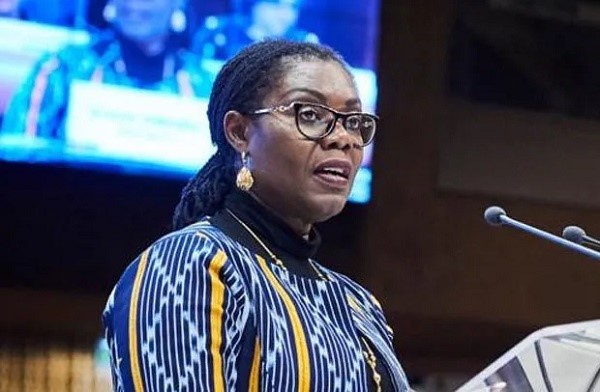Minister for Communication and Digitalisation, Ursula Owusu-Ekuful, says government is setting up a data exchange hub to make uniform data across all sectors of the economy readily available in the governance process.
Speaking at the World Development Report 2021 launch, a country dissemination workshop in Accra, the minister said: “We are working on a data exchange hub. We see that it will be difficult to store all our data in one location, but what will make it possible for us to access the health of data in several databases is putting in place a data exchange hub that provides the infrastructure protocols and framework for data-sharing across the public and private sectors”.
She mentioned that sharing real-time information is also expected to improve security across the country, as the security and intelligence agencies can target scarce resources to where it is needed most based on timely and accurate data.
“The partnership between development partners, civil societies and government is expected to improve, as there will be more reliable and uniform data across all sectors of the economy readily available in the governance process,” Ms. Owusu-Ekuful said.
The minister revealed that on the commercial side, government is looking to model a regulated commercial framework around big data. This will encourage institutions, both private and public, to generate more data.
The Big Data initiatives are expected to be deployed with a data governance framework that defines data value, data exchange protocols, security channels and protocols, data governance hierarchy, and data exchange dispute resolution protocols, among others.
Government is currently working on deploying Big Data across the country to rationalise the collection, processing, storing and sharing of data among government agencies.
“This is expected to be the next major jump on our journey to completely digitise our economy. Big Data is expected to come with the needed data analytics platform that will help make proper sense of all the data being mined across government. It will also help government track trends across the ecosystem and make projections based on data modelling techniques that will be critical for decision-making across the spectrum,” Ms. Owusu-Ekuful said.
Big Data architecture also takes into consideration the data generated and stored within the private sector to ensure there is seamless sharing of data across both private and public sectors.
The Big Data regime is expected to bring transparency and efficiency to the way data is utilised. The built-in artificial intelligence component will ensure real-time updates of the different models for different stakeholders.
“The underlying infrastructure to ensure that we get more value out of this data ecosystem we are building is also being improved,” she said.
Government will then be able to make policy decisions based on data science and communicate effectively to citizens who will have access to the same data. This should improve the trust relationship between government and citizenry.
For instance, GIFEC through the rural telephony project is extending connectivity to the most rural parts of communities with shared community base stations, so as to enable all telco providers to provide services for rural folks without the CAPEX overhead on their part. This will facilitate access to the data ecosystem.
According to the WDR2021, this ecosystem includes data infrastructure policies, laws and regulations, economic policies as well as data institutions for effective implementation of these enabling frameworks. These building blocks of data governance together constitute a new social contract that seeks to deliver the potential value of data equitably, while fostering trust by safeguarding against data misuse.










